Dry Mouth Care Quiz
Dry Mouth‑Friendly Oral Care Routine is a set of dental‑hygiene practices tailored to people who produce less saliva than normal. It focuses on gentle products, extra moisture, and habits that keep plaque at bay without worsening xerostomia.
Why a Special Routine Matters
When dry mouth (also called xerostomia) strikes, the protective layer of saliva disappears. Saliva does three things: neutralises acids, washes away food debris, and supplies minerals for enamel. Without it, cavities rise, bad breath spikes, and the tongue can feel raw.
Research from the Australian Dental Association (2024) shows that people with chronic dry mouth are 2.5times more likely to develop root caries. The good news? A well‑designed routine can offset that risk without expensive dental visits.
Core Components of a Dry‑Mouth‑Friendly Routine
- Saliva substitute: a gel or spray that mimics natural saliva’s lubricating properties.
- Fluoride toothpaste: low‑abrasive, fluoride‑rich paste that strengthens enamel while being gentle on soft tissues.
- Alcohol‑free mouthwash: clears bacteria without the drying effect of ethanol.
- Sugar‑free gum: stimulates residual salivary flow and provides a quick refresher.
- Hydration: regular water intake keeps the whole system moist.
- Room humidifier: raises ambient humidity, especially at night.
Step‑by‑Step Daily Plan
- Morning rinse: Use a dry mouth oral care‑friendly mouthwash (see table below). Swish for 30seconds and spit.
- Do not swallow - the goal is surface cleaning, not hydration.
- Brush gently: Choose a soft‑bristled brush and fluoride toothpaste with at least 1,450ppm fluoride. Brush for 2minutes, focusing on the gum line.
- Apply saliva substitute: While still in the bathroom, spray or dab a saliva‑substituting gel onto the tongue, inner cheeks, and hard palate. Reapply every 2‑3hours.
- Chew sugar‑free gum after meals to stimulate any remaining salivary glands.
- Hydrate throughout the day: Aim for 8‑10cups of water, sipping regularly rather than gulping.
- Evening wind‑down: Repeat the mouthwash, brush, and saliva substitute. Set a bedside humidifier to low‑medium for 6‑8hours.
Choosing the Right Products
| Attribute | Alcohol‑Free Mouthwash | Traditional Mouthwash (Alcohol‑Based) |
|---|---|---|
| Key Ingredients | Glycerin, aloe vera, cetylpyridinium chloride | Ethanol, essential oils, chlorhexidine |
| Alcohol Content | 0% | 15‑25% |
| Suitability for Xerostomia | High - adds moisture | Low - can worsen dryness |
| Flavor Options | Mint, cucumber, mild herbal | Strong mint, wintergreen |
| Typical Price (AUD) | 10‑15 per 250ml | 8‑12 per 250ml |

Understanding Underlying Causes
Not all dry mouth is medication‑induced. Sjogren’s syndrome, diabetes, and radiation therapy to the head and neck also impair salivary glands. Knowing the cause helps you discuss targeted treatments with your dentist or physician.
Medications such as antihistamines, antidepressants, and diuretics are the most common culprits (up to 40% of cases). If you suspect a drug is responsible, talk to your prescriber about alternatives or dosage adjustments.
Tips to Maximise Moisture Throughout the Day
- Use a humidifier in sleeping areas - 30‑50% relative humidity reduces night‑time mouth dryness.
- Avoid caffeine and alcohol in excess; both have diuretic effects that thin saliva.
- Chew on fresh herbs like parsley or mint; they contain natural oils that coat the mouth.
- Eat moist foods such as soups, stews, and yogurt to add fluid directly.
- Limit sugary snacks; they feed bacteria that produce acids, especially harmful when saliva is low.
When to See a Dental Professional
If you notice persistent burning, frequent cavities, or a thick white coating on the tongue, schedule an appointment. A dentist can assess plaque levels, prescribe high‑fluoride treatments, or recommend prescription‑strength saliva substitutes.
Regular six‑month cleanings are still essential, but let your hygienist know about your dry‑mouth routine so they can adjust polishing techniques accordingly.
Maintaining the Routine Long‑Term
Consistency beats perfection. Keep a small travel kit with a toothpaste tube, saliva spray, and a pocket‑size mouthwash so you’re never caught off‑guard. Set phone reminders for re‑application of saliva substitute during long meetings or flights.
Track progress in a simple spreadsheet: date, product used, any symptoms, and water intake. Over a month, patterns emerge, letting you tweak product choices.
Frequently Asked Questions
Can I use regular mouthwash if I have dry mouth?
Most traditional mouthwashes contain alcohol, which strips away the little moisture you have left. Switch to an alcohol‑free formula; it cleans without drying.
How often should I apply a saliva substitute?
Apply every 2‑3hours during waking hours. At night, a thicker gel applied before sleep can stay in place for 6‑8hours.
Is sugar‑free gum enough to replace saliva?
Chewing gum stimulates residual salivary glands but doesn’t replace saliva’s full protective functions. Use it as a boost alongside substitutes.
What humidity level is ideal for a bedroom?
Aim for 30‑50% relative humidity. Use a hygrometer to monitor; too high can encourage mold.
Do fluoride toothpaste and saliva substitutes conflict?
No. Fluoride strengthens enamel, while saliva substitutes keep the mouth moist. Apply the substitute after brushing to avoid diluting fluoride’s effect.

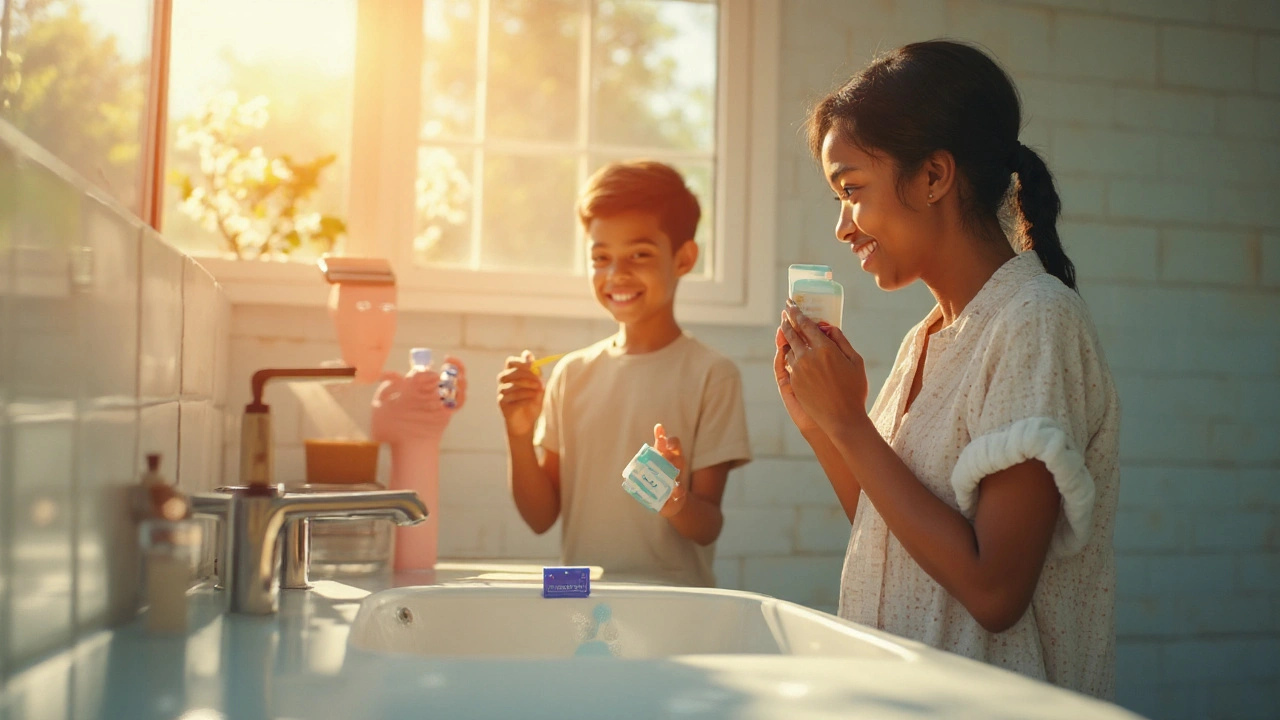

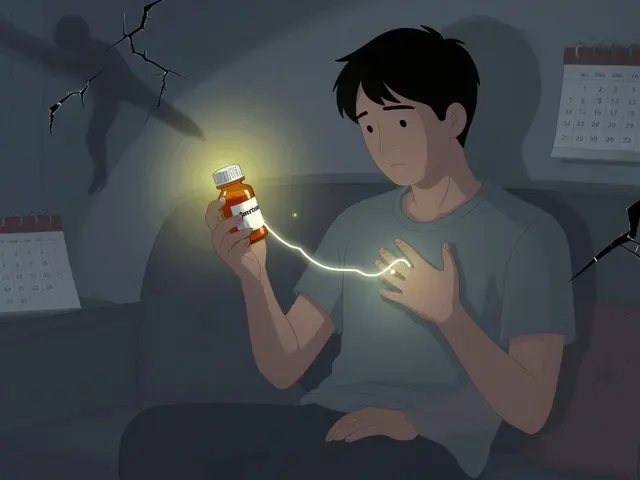

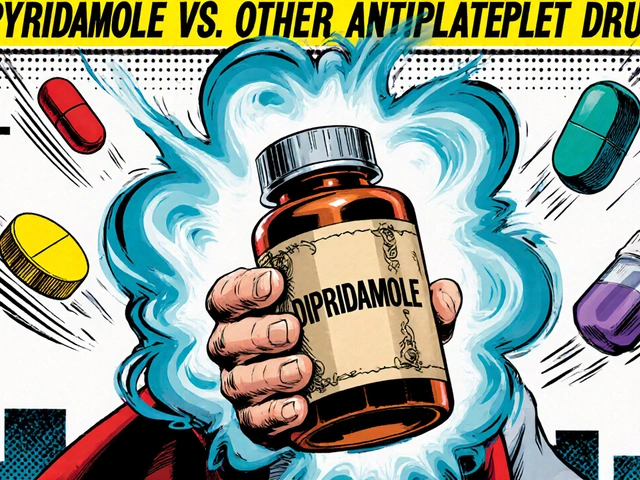
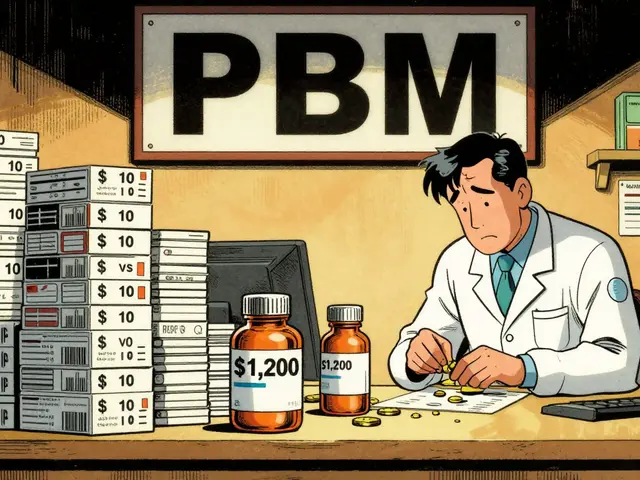
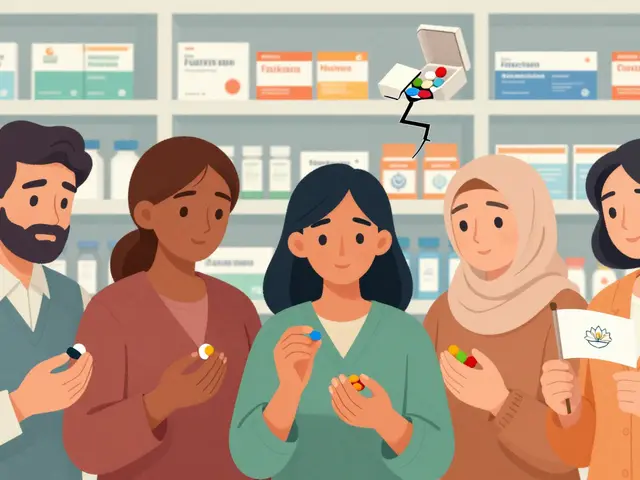
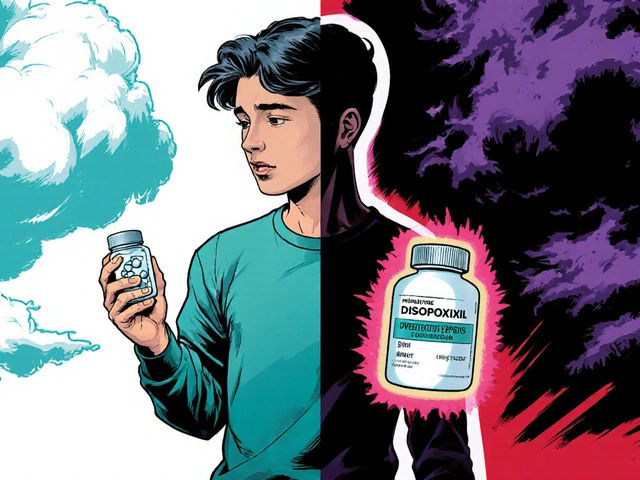
13 Comments
Been using this routine for 3 months now and my tongue doesn’t feel like sandpaper anymore 🙌
Saliva spray + humidifier = game changer. Also stopped drinking coffee after noon and my nights are actually peaceful now.
why do u even need all this stuff? just drink water. its free.
Drink water?? Lol you think this is just dehydration? My doc said I have Sjogren’s and my salivary glands are basically dead.
Water helps but it doesn’t fix the lack of enzymes and minerals saliva gives you. You’re lucky if you don’t have cavities yet.
Let me guess - this whole routine was funded by Big Oral Care™.
They don’t want you to know that dry mouth is caused by fluoride poisoning and 5G radiation disrupting your salivary glands. The government knows. Your dentist knows. They just won’t tell you because they’re paid by the toothpaste conglomerates.
Try switching to baking soda and coconut oil. It’s been used for 10,000 years. Your gums will thank you - if you’re not being gaslit by Big Dentistry.
Of course you’re being manipulated. They sell you $15 mouthwash so you don’t ask why your meds are making you a walking mummy.
And don’t even get me started on how humidifiers are secretly tracking your sleep patterns for insurance companies. They want to know when you’re vulnerable.
Also, fluoride is a neurotoxin. You’re poisoning your brain with ‘enamel protection’.
While I appreciate the intent of this guide, I must emphasize that the term 'dry mouth-friendly' is a marketing construct rather than a clinical one. The recommended products - particularly those containing glycerin - may create a temporary sensation of moisture but can interfere with natural mucosal rehydration. A 2023 Cochrane review found no significant difference in caries reduction between glycerin-based substitutes and water-based rinses when combined with proper hydration and fluoride application. The most effective intervention remains consistent, low-abrasive fluoride toothpaste and avoidance of xerogenic agents. I recommend consulting a salivary specialist before investing in proprietary products.
Interesting. I’ve been using the same routine for two years after radiation. The key isn’t the brand - it’s consistency. I use a $7 generic fluoride toothpaste and a $10 saline spray from the pharmacy. The humidifier? Worth every penny. I don’t need fancy herbs or $15 mouthwash.
Also - sugar-free gum? Only if it’s xylitol. Anything else is just candy with a label.
Y’all are overcomplicating this. Dry mouth isn’t a condition - it’s a symptom of systemic inflammation. The real solution? Eliminate lectins. Gluten, nightshades, soy - they’re all attacking your salivary epithelium. Once you go lectin-free, your mouth reboots. No sprays, no humidifiers, no fluoride. Just ancestral eating. I’ve been symptom-free for 14 months. The science? It’s all in Dr. Gundry’s latest whitepaper.
eh whatever. i just use lip balm on my tongue. works fine.
Think about it - saliva is the body’s first line of defense against entropy. It’s not just moisture - it’s liquid memory. Your mouth remembers every acidic bite, every chemical rinse, every night without humidity. When you lose saliva, you lose your biological archive.
And yet we treat it like a plumbing issue. ‘Just add water.’ No. We’re not leaking. We’re forgetting how to produce. The modern world - processed foods, stress, screen glare, air conditioning - it’s all designed to dehydrate your soul, not just your mouth.
Maybe the real cure isn’t in gels or sprays… but in slowing down. Breathing. Letting your body remember how to be alive.
Man, this hits different. I’ve had dry mouth since my 20s after an autoimmune flare. I used to think I was just ‘bad at oral care.’ Turns out I was just living in a dry, noisy, caffeine-saturated world that doesn’t care if your mouth feels like parchment.
I started using a humidifier, switched to alcohol-free mouthwash after reading this, and now I carry a tiny bottle of water everywhere - not just to drink, but to mist my face before bed. It’s not a routine. It’s a ritual.
Also, I chew mint leaves. Not gum. Actual leaves. Feels like I’m in a Japanese garden. My dentist asked if I was meditating. I said yes.
Wow. Someone actually wrote a 2,000-word essay on how to not have a mouth like a desert. I’m impressed.
Meanwhile, I’m over here spitting out a $12 gel every three hours like I’m a robot programmed by Big Saliva™. But hey - at least I’m not dying of root caries while my neighbor chews on a candy bar and says ‘just brush harder.’
Respect to the person who made this. You just saved someone’s smile. And maybe their dignity.
It’s fascinating how we’ve turned a physiological state into a product category. We used to just sip water and chew herbs. Now we need a spreadsheet, a humidifier, a pH-balanced gel, and a subscription to a ‘dry mouth wellness’ newsletter.
Perhaps the real question isn’t how to fix dry mouth - but why we’ve become so afraid of our own bodies.